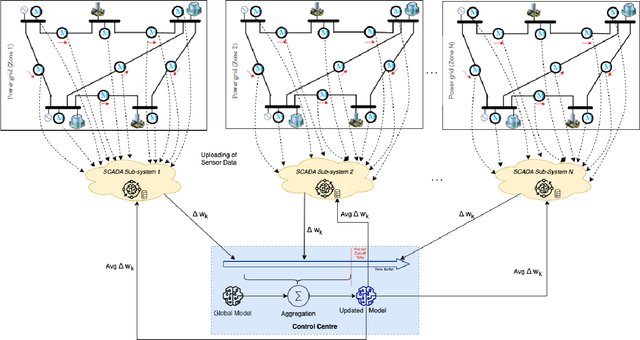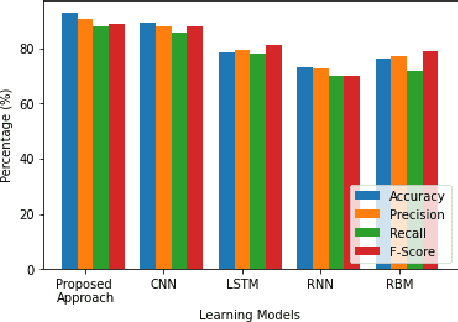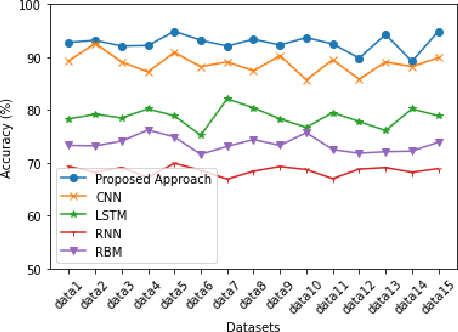Haftu Tasew Reda
FedDiSC: A Computation-efficient Federated Learning Framework for Power Systems Disturbance and Cyber Attack Discrimination
Apr 07, 2023



Abstract:With the growing concern about the security and privacy of smart grid systems, cyberattacks on critical power grid components, such as state estimation, have proven to be one of the top-priority cyber-related issues and have received significant attention in recent years. However, cyberattack detection in smart grids now faces new challenges, including privacy preservation and decentralized power zones with strategic data owners. To address these technical bottlenecks, this paper proposes a novel Federated Learning-based privacy-preserving and communication-efficient attack detection framework, known as FedDiSC, that enables Discrimination between power System disturbances and Cyberattacks. Specifically, we first propose a Federated Learning approach to enable Supervisory Control and Data Acquisition subsystems of decentralized power grid zones to collaboratively train an attack detection model without sharing sensitive power related data. Secondly, we put forward a representation learning-based Deep Auto-Encoder network to accurately detect power system and cybersecurity anomalies. Lastly, to adapt our proposed framework to the timeliness of real-world cyberattack detection in SGs, we leverage the use of a gradient privacy-preserving quantization scheme known as DP-SIGNSGD to improve its communication efficiency. Extensive simulations of the proposed framework on publicly available Industrial Control Systems datasets demonstrate that the proposed framework can achieve superior detection accuracy while preserving the privacy of sensitive power grid related information. Furthermore, we find that the gradient quantization scheme utilized improves communication efficiency by 40% when compared to a traditional federated learning approach without gradient quantization which suggests suitability in a real-world scenario.
FeDiSa: A Semi-asynchronous Federated Learning Framework for Power System Fault and Cyberattack Discrimination
Mar 28, 2023



Abstract:With growing security and privacy concerns in the Smart Grid domain, intrusion detection on critical energy infrastructure has become a high priority in recent years. To remedy the challenges of privacy preservation and decentralized power zones with strategic data owners, Federated Learning (FL) has contemporarily surfaced as a viable privacy-preserving alternative which enables collaborative training of attack detection models without requiring the sharing of raw data. To address some of the technical challenges associated with conventional synchronous FL, this paper proposes FeDiSa, a novel Semi-asynchronous Federated learning framework for power system faults and cyberattack Discrimination which takes into account communication latency and stragglers. Specifically, we propose a collaborative training of deep auto-encoder by Supervisory Control and Data Acquisition sub-systems which upload their local model updates to a control centre, which then perform a semi-asynchronous model aggregation for a new global model parameters based on a buffer system and a preset cut-off time. Experiments on the proposed framework using publicly available industrial control systems datasets reveal superior attack detection accuracy whilst preserving data confidentiality and minimizing the adverse effects of communication latency and stragglers. Furthermore, we see a 35% improvement in training time, thus validating the robustness of our proposed method.
 Add to Chrome
Add to Chrome Add to Firefox
Add to Firefox Add to Edge
Add to Edge